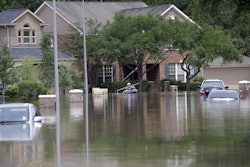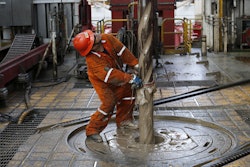A group of lawmakers in Massachusetts are pushing the most sweeping ban on flame retardant chemicals proposed by any U.S. state so far.
According to a Boston Globe report, the legislators have joined forces with local firefighters and environmental advocates who worry that the exposure to the chemicals increases the risk of cancer while doing little to slow encroaching fires.
The debate around flame retardants has intensified in recent years and often pits environmentalists against the chemicals industry.
It all started after California passed a flammability standard in 1975, requiring the use of the chemicals in furniture and baby products. Because furniture manufacturers didn’t want to make products differently for one state, it became the de facto standard for the whole country.
Then in 2012 the Chicago Tribune released an investigative report that accused industry leaders of covering up the potential health hazards of the chemicals, saying that the industry had engaged in a “decades-long campaign of deception” that put profits above public health. According to the Tribune, the science often cited as showing that flame retardants are safe is flawed.
The American Chemistry Council has maintained that the link between cancer and flame retardants hasn’t been confirmed and that the chemicals still play a vital role in slowing down fires.
“Because these substances do deter fires, they provide additional time for families to escape and provide more time for firefighters to arrive,” Robert Simon, vice president of chemical products and technology at the American Chemistry Council, said in the Boston Globe report. Simon also pointed out that firefighters are exposed to a host of carcinogens at higher rates, including diesel fumes from their trucks.
But a physician who worked with the Boston Fire Department for 13 years said firefighters are three times as likely to have cancer than the general public. A study by the American Journal of Industrial Medicine also concluded that Massachusetts firefighters are more likely to develop colon, brain and balder cancers. And studies in other major cities have found that firefighters have an increased risk for lung, digestive and urinary cancers.
So far, 13 other states have proposed bans on flame retardants. About a month ago, the Washington state legislature passed a bill that would ban or restrict the manufacture of five flame retardant chemicals including TBBPA, a replacement chemical for a flame retardant that was banned in 2011.
In Massachusetts, lawmakers are lobbying to ban 10 chemicals — more than any other state so far.
While the debate plays out in state legislative halls across the country, some argue that there should be federal regulations instead, which would provide clear and consistent standards across the industry.
Meanwhile, California has since reversed its flammability standard, which has eliminated the mandate for using flame retardants. With all of the concern circulating in the public, several large retailers, including Macy’s and Ikea, have opted to phase out the chemicals ahead of any legal requirement.






















